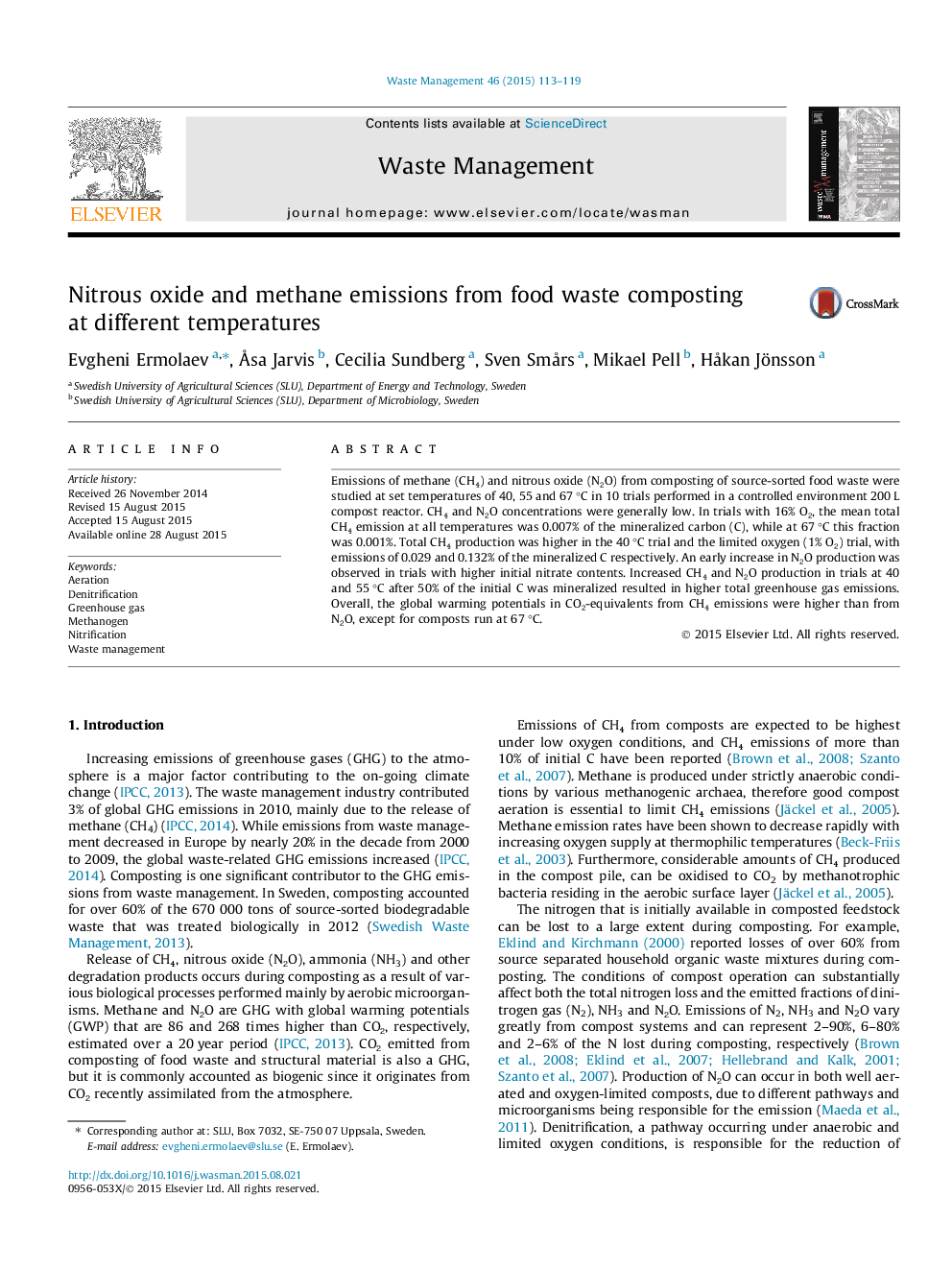| Article ID | Journal | Published Year | Pages | File Type |
|---|---|---|---|---|
| 6354423 | Waste Management | 2015 | 7 Pages |
Abstract
Emissions of methane (CHâ) and nitrous oxide (NâO) from composting of source-sorted food waste were studied at set temperatures of 40, 55 and 67 °C in 10 trials performed in a controlled environment 200 L compost reactor. CHâ and NâO concentrations were generally low. In trials with 16% Oâ, the mean total CHâ emission at all temperatures was 0.007% of the mineralized carbon (C), while at 67 °C this fraction was 0.001%. Total CHâ production was higher in the 40 °C trial and the limited oxygen (1% Oâ) trial, with emissions of 0.029 and 0.132% of the mineralized C respectively. An early increase in NâO production was observed in trials with higher initial nitrate contents. Increased CHâ and NâO production in trials at 40 and 55 °C after 50% of the initial C was mineralized resulted in higher total greenhouse gas emissions. Overall, the global warming potentials in COâ-equivalents from CHâ emissions were higher than from NâO, except for composts run at 67 °C.
Related Topics
Physical Sciences and Engineering
Earth and Planetary Sciences
Geotechnical Engineering and Engineering Geology
Authors
Evgheni Ermolaev, Ã
sa Jarvis, Cecilia Sundberg, Sven SmÃ¥rs, Mikael Pell, HÃ¥kan Jönsson,
